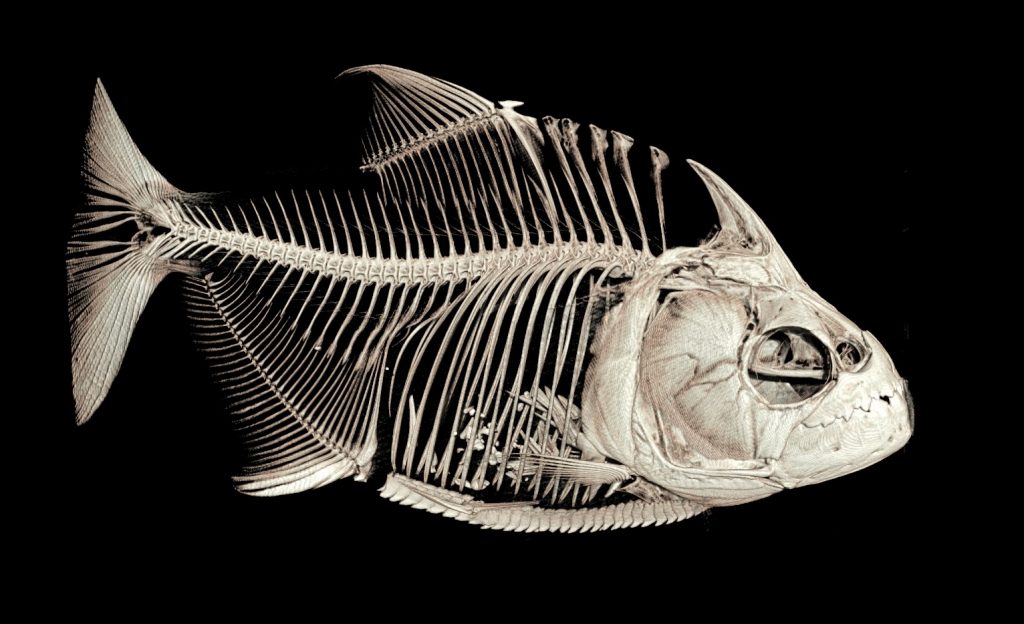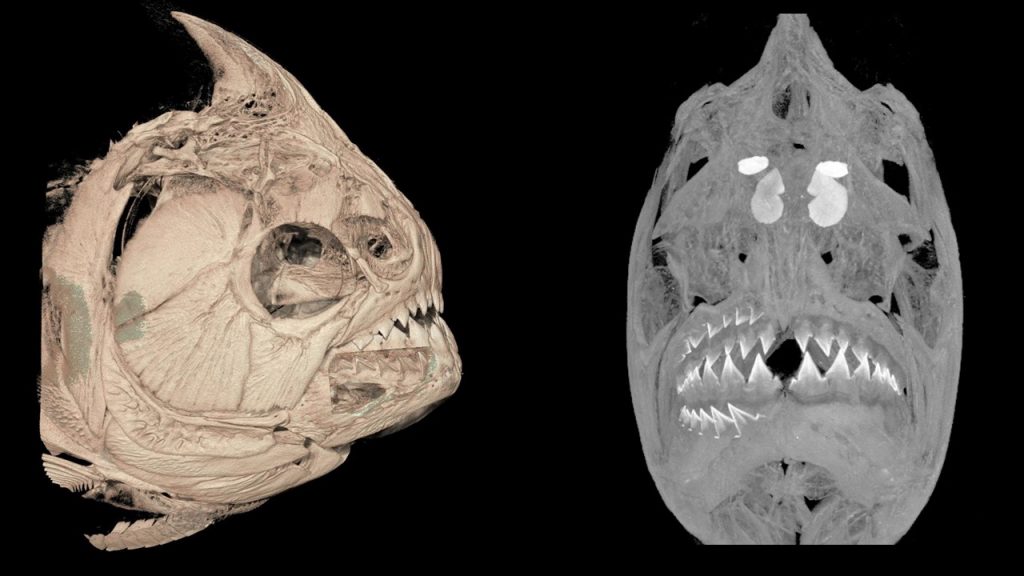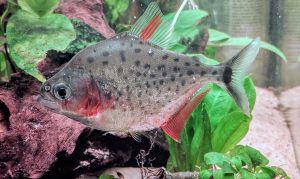Piranha fish swap old teeth for new simultaneously
By Michelle Ma
The article originally appeared in UW News

Piranha fish have a powerful bite. Their teeth help them shred through the flesh of their prey or even scrape plants off rocks to supplement their diet.
Years ago, scientists discovered that piranhas lose all of the teeth on one side of their mouth at once and regrow them, presumably to replace dulled teeth with brand new sharp spears for gnawing on prey. But no museum specimens have ever shown this theory to be true, and there’s no documentation of piranhas missing an entire block of teeth.
With the help of new technologies, a team led by the University of Washington has confirmed that piranhas — and their plant-eating cousins, pacus — do in fact lose and regrow all the teeth on one side of their face multiple times throughout their lives. How they do it may help explain why the fish go to such efforts to replace their teeth.
The findings were published Aug. 26 in the journal Evolution & Development.
“I think in a sense we found a solution to a problem that’s obvious, but no one had articulated before,” said senior author Adam Summers, a professor of biology and of aquatic and fishery sciences at UW Friday Harbor Laboratories on San Juan Island.
“The teeth form a solid battery that is locked together, and they are all lost at once on one side of the face. The new teeth wear the old ones as ‘hats’ until they are ready to erupt. So, piranhas are never toothless even though they are constantly replacing dull teeth with brand new sharp ones.”

This research features Adam Summers who is currently teaching FHL 471: Comparative Anatomy and Physiology of Marine Organisms at Friday Harbor Labs and Matthew Kolman who will be teaching the FHL 470: Research in Marine Biology: Form and Function in Fishes course as part of the ‘Zoo-Bot Program’ at Friday Harbor Labs in spring 2020. Students can contact Joe Kobayashi, the Marine Biology adviser, at marbiol@uw.edu or go to fhl.uw.edu to learn more about spending a term at Friday Harbor Labs.
